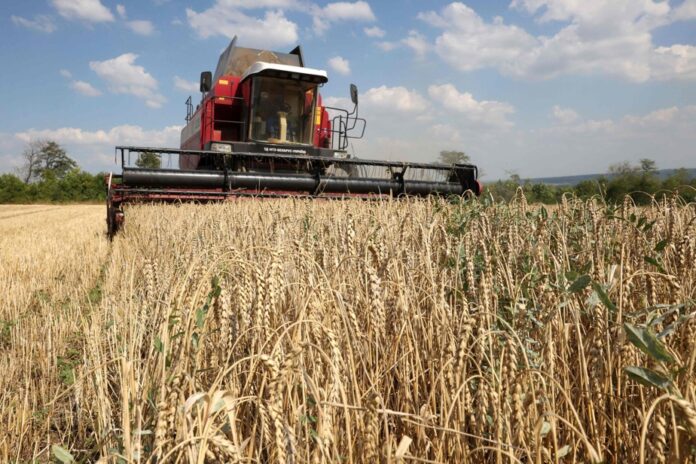(New York) Global wheat production is expected to be lower for the 2023-2024 season due to lower production in Canada and Europe, slightly offset by higher production in Ukraine, according to estimates released Friday by the United States Department of Agriculture (USDA) in its monthly “Wasde” report.
World wheat supply will decline marginally by almost 3 million tonnes to 793.37 million while the European Union is expected to see its harvest decrease by 3 million tonnes to 135 million tonnes, due to a decline in Spain, Lithuania and Romania. Canada will also see a reduction of 2 million tonnes due to drought, the Wasde report estimates.
Ukraine is expected to produce 3.5 million tonnes more than the previous season, according to the USDA, with production of 21 million tonnes. But due to the expiry of the passage agreement with Russia in the Black Sea, the amount of its exports is estimated unchanged at 10.50 million tonnes.
US wheat production is seen down slightly to 47.20 million tonnes and its exports also to 19.05 million.
The state of global stocks will fall slightly to 265.6 million tonnes, but those of the United States are higher than expected at 16.75 million tonnes, which slightly lower the price of the cereal at the publication of the report .
For corn, world production for 2023-2024 is revised down sharply by almost 11 million tonnes, while stocks will also decrease by almost 3 million. US production is expected to fall by almost 6 million tonnes to 383.8 million and that of the European Union by almost 4 million to 59.7 million.
Ukrainian production, on the other hand, will be better at 27.5 million tons (2.5 million), but its exports should not change, still under the pressure of the war, at 5.5 million tons.
For soybeans, global maize production is expected to fall by 2.5 million tonnes to 402.8 million due to lower production in the United States. Global stocks will be down a little at 119.4 million following a drop in US stocks.
The United States should also see its exports of corn and soybeans decline.















